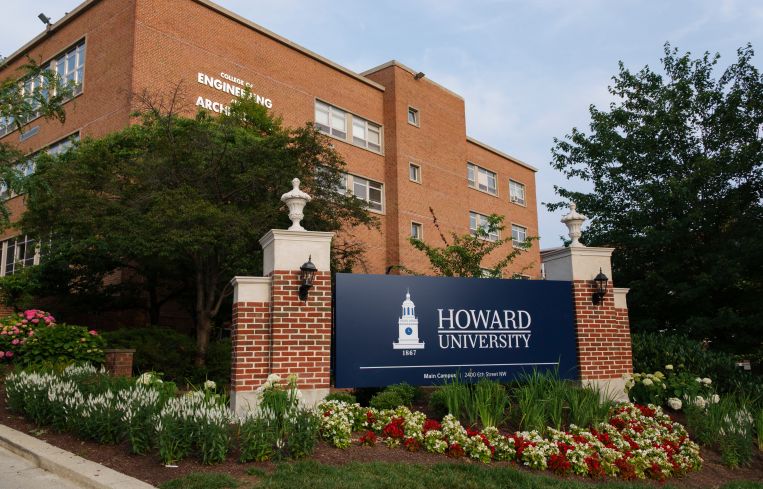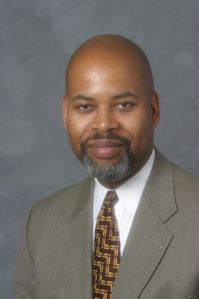Trump Wants CRE to Tap the Talent at Historically Black Colleges. Here’s How.
By G. Lamont Blackstone July 15, 2025 9:00 am
reprints
Along with the likes of the plantation owners of the 18th and early 19th centuries, Donald Trump is the rare example of a U.S. president with a real estate background. As such, many commercial real estate executives may feel an affinity with him. Hence, they should support his de facto endorsement that embraces diversity, equity and inclusion (DEI).
That was not a typo — yes, Donald Trump supports a diversity initiative. Of course, that could be viewed as paradoxical.
On April 23, President Trump signed an executive order regarding HBCUs (historically Black colleges and universities). It provides CRE executives a means to demonstrate their affinity with the president’s profession. The order stipulates support for the nation’s HBCUs and encourages the private sector in “providing professional development opportunities for HBCU students to help build America’s workforce ….”
So, the CRE industry should expect approval from Washington of any collaborations with these talent incubators. Firms can proceed by pulling HBCU graduates into the profession.

HBCUs were formed in response to the educational embargoes imposed upon Black Americans well into the 20th century. While they may be unfamiliar to many because of information asymmetries, they have produced some of America’s greatest minds: Supreme Court Justice Thurgood Marshall, Dr. Martin Luther King Jr., NASA mathematician Katherine Johnson (featured in the hit movie “Hidden Figures”) and television pioneer Oprah Winfrey.
However, those institutions have also incubated talent that has contributed, directly or indirectly, to the CRE industry — notwithstanding its own historic barriers to Black professionals. To illustrate, the technology billionaire Robert F. Smith has lauded George Alcorn Jr., a Howard University-trained nuclear physicist and engineer whose accomplishments include advancing the airborne LiDAR topographic mapping system. That innovation has been employed in site assessments for development projects. It also enables the creation of highly detailed 3D models of buildings and environments. As engineering consultancy LJA noted, “LiDAR delivers centimeter-level accuracy, providing a detailed and reliable representation of the Earth’s surface.”
Project REAP, the nonprofit talent initiative serving the CRE industry, is intimately familiar with the human capital that HBCUs produce. So, if CRE firms are eager to respond to Trump’s executive order, they will find models of HBCU excellence among REAP’s academy alums. That list includes London Kemp Boykin, Amazon’s director of global sustainable development and North America real estate, who is a proud graduate of Spellman College. Or John Gilmore IV, a Morehouse alum and a senior managing director at Walker & Dunlop, one of the multifamily sector’s financing partners.
Additionally, and much to the benefit of the retail real estate sector, ICSC also employs a REAP alum and HBCU grad: Jazmen Johnson. As an alumna of North Carolina Agricultural & Technical State University, Johnson serves as ICSC’s vice president of industry inclusion and engagement. Her role there has included coordinating collaborations with multiple colleges — including HBCUs such as Morehouse, Florida A&M, North Carolina Central University and Hampton.
Of this industry association effort, Johnson reports: “Through ICSC Foundation’s University Partner Program, students gain access to all ICSC resources, including student-specific training and networking opportunities. Our team is committed to ensuring that HBCUs are included in that network and that students from those institutions are equipped to pursue a career in our industry.” Accordingly, CRE leaders will find that HBCUs are already focused on the CRE sector.
Institutions that offer real estate education include, but are not limited to, Howard University and North Carolina Central University. The latter offers a real estate specialization within its MBA program.
Thus, if the industry is to heed Trump’s call for private sector collaborations, how might firms take immediate action?
Here’s one of several possibilities. Project REAP is planning a fall 2025 academy after its successful execution of its spring program. As corporate sponsors, CRE firms could collaborate with REAP to recruit and train HBCU alumni as Project REAP academy fellows, thereby turbocharging their readiness for careers in CRE.
While narrow-minded criticisms decry “identity politics,” identity culture has been instrumental for the cultivation of American human capital. Georgetown University was founded as a Catholic institution. Another example was the formation of Brandeis University in the aftermath of World War II. Brandeis was established to provide Jewish students with an educational safe space for their talents. As the university states in its promotional video: “In a perfect world, there wouldn’t have been a need for Brandeis University.”
Likewise, in a perfect world, there would never have been any need for HBCUs. But our national history has been highly imperfect. Therefore, the CRE sector should endorse Trump’s proclamation and cultivate exceptional HBCU talent.
Lamont Blackstone is an urban development consultant and past volunteer dean of ICSC’s University of Shopping Centers. He is also the advisory council chair and former board chair of Project REAP.



